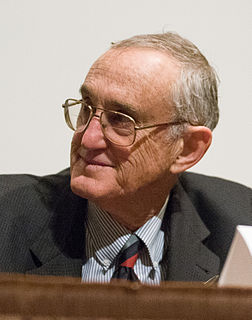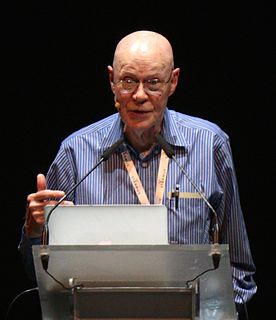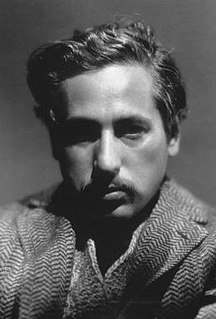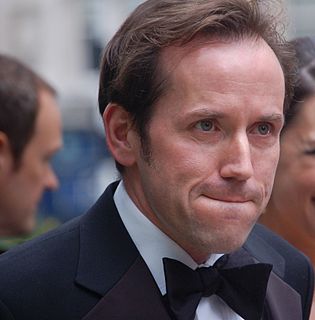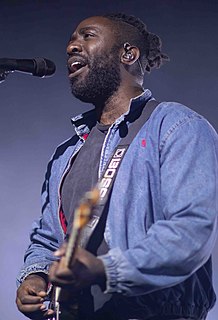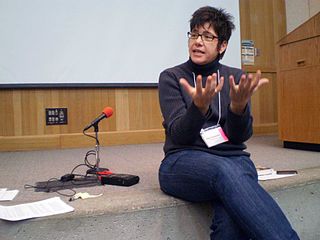A Quote by James Clavell
Changi became my university instead of my prison. Among the inmates there were experts in all walks of life - the high and the low roads. I studied and absorbed everything I could from physics to counterfeiting, but most of all I learned the art of surviving.
Related Quotes
Following graduation from high school in 1948, I attended Harvard University where I became a physics major. Having grown up in a small town, I found Harvard to be an enormously enriching experience. Students in my class came from all walks of life and from a great variety of geographical locations.
When I finished my degree I became a physics and maths teacher. And worked in the international school in Brussels, because like many kids, after University I went home going 'ahhh I don't know what to do'. I happened to fall upon a job there because they were desperate for a physics teacher which is a common theme among many schools.
I studied physics at Princeton when I was a college student, and my initial intention was to major in it but to also be a writer. What I discovered, because it was a very high-powered physics program with its own fusion reactor, was that to keep up with my fellow students in that program I would need to dedicate myself to math and physics all the time and let writing go. And I couldn't let writing go, so I let physics go and became a science fan and a storyteller.
My high school career was undistinguished except for math and science. However, having barely been admitted to Rice University, I found that I enjoyed the courses and the elation of success and graduated with honors in physics. I did a senior thesis with C.F. Squire, building a regulator for a magnet for use in low-temperature physics.
It is very seldom that any one is in prison for an ordinary crime unless early in life he entered a path that almost invariably led to the prison gate. Most of the inmates are the children of the poor. In many instances they are either orphans or half-orphans; their homes were the streets and byways of big cities, and their paths naturally and inevitably took them to their final fate.
... as recently as the mid-1970s, the most well-respected criminologists were predicting that the prison system would soon fade away. Prison did not deter crime significantly, many experts concluded. Those who had meaningful economic and social opportunities were unlikely to commit crimes regardless of the penalty, while those who went to prison were far more likely to commit crimes again in the future.
Intellectual culture seems to separate high art from low art. Low art is horror or pornography or anything that has a physical component to it and engages the reader on a visceral level and evokes a strong sympathetic reaction. High art is people driving in Volvos and talking a lot. I just don't want to keep those things separate. I think you can use visceral physical experiences to illustrate larger ideas, whether they're emotional or spiritual. I'm trying to not exclude high and low art or separate them.
Although I was four years at the University [of Wisconsin], I did not take the regular course of studies, but instead picked out what I thought would be most useful to me, particularly chemistry, which opened a new world, mathematics and physics, a little Greek and Latin, botany and and geology. I was far from satisfied with what I had learned, and should have stayed longer.
Whatever they are, can Comics be "Art"? Of course they can. The "Art" in a piece is something independent of genre, form, or material. My feeling is that most paintings, most films, most music, most literature and, indeed, most comics fail as "Art." A masterpiece in any genre, form or material is equally "good." It's ridiculous to impose a hierarchy of value on art. The division between high and low art is one that cannot be defended because it has no correlation to aesthetic response.
I never understood the low art/high art distinction. I think there's real currency in pop culture. We read trashy magazines as much as the next person. So I never saw the point in listening to only one thing. That low art/high art distinction comes from the establishment telling me how I'm supposed to think.
Although prison officials have long battled illegal cellphones, smartphones have changed the game. With Internet access, a prisoner can call up phone directories, maps and photographs for criminal purposes, corrections officials and prison security experts say. Gang violence and drug trafficking, they say, are increasingly being orchestrated online, allowing inmates to keep up criminal behavior even as they serve time.

